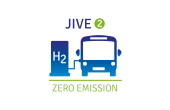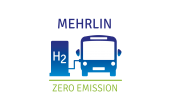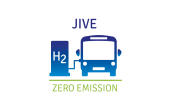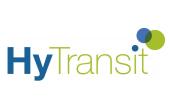A White Paper on the commercialisation of fuel cell buses in Europe has been published in October 2017.
Buses are a central element of public transport systems. They are highly flexible while being a relatively low cost and efficient way of transporting people, especially in cities. While diesel still fuels most buses in operation worldwide, significant developments in alternative fuelled vehicles have been made in recent years and a range of ultra-low and zero emission options are now on the market. This paper focuses on hydrogen fuel cell buses, which are a form of electric bus, and summarises the findings of a focused study of the sector. Key conclusions include:
• Hydrogen fuel cell buses have been demonstrated in real-world operations over many years and are now on the cusp of a commercial breakthrough. This is not widely known beyond the fuel cell bus sector but is highly relevant for cities seeking versatile zero emission alternatives to diesel.
• Industry projections suggest that fuel cell buses will be competitive with battery electric buses on many routes within the next three to five years.
• Interest in battery electric buses from politicians in many cities has created market conditions that will allow fuel cell buses to compete economically without public sector subsidy in the near future, i.e. from the early 2020s.
• Fuel cell buses and battery electric buses are complementary technologies as they share a high proportion of common components; the most appropriate solution depends on the local context and constraints. With long range and short refuelling times, fuel cell buses offer a zero-emission solution on a wide range of routes, with particular advantages when fuelling heavier vehicles (articulated vehicles, double decks) with a high daily mileage, and challenging terrain, etc.
• Continued development of Europe’s fuel cell bus sector will require (i) technology-neutral zero emission policies in cities / regions and at a national level; (ii) coordinated action to aggregate demands for vehicles that will unlock price reductions from economy of scale effects; and (iii) further development of the supply side, i.e. more manufacturers offering a wider choice of zero emission products that meet their customers’ needs.
This document sets out a vision for large-scale deployment of hydrogen fuel cell buses on a commercial basis from the early 2020s and targets a broad audience: policy makers, regulators, investors, technology providers, bus operators, etc. The aim is to stimulate debate regarding how the vision could be delivered and to define next steps for the principal actors: policy makers, bus manufacturers, component suppliers, hydrogen infrastructure providers, and bus operators.
The full document is available here.






